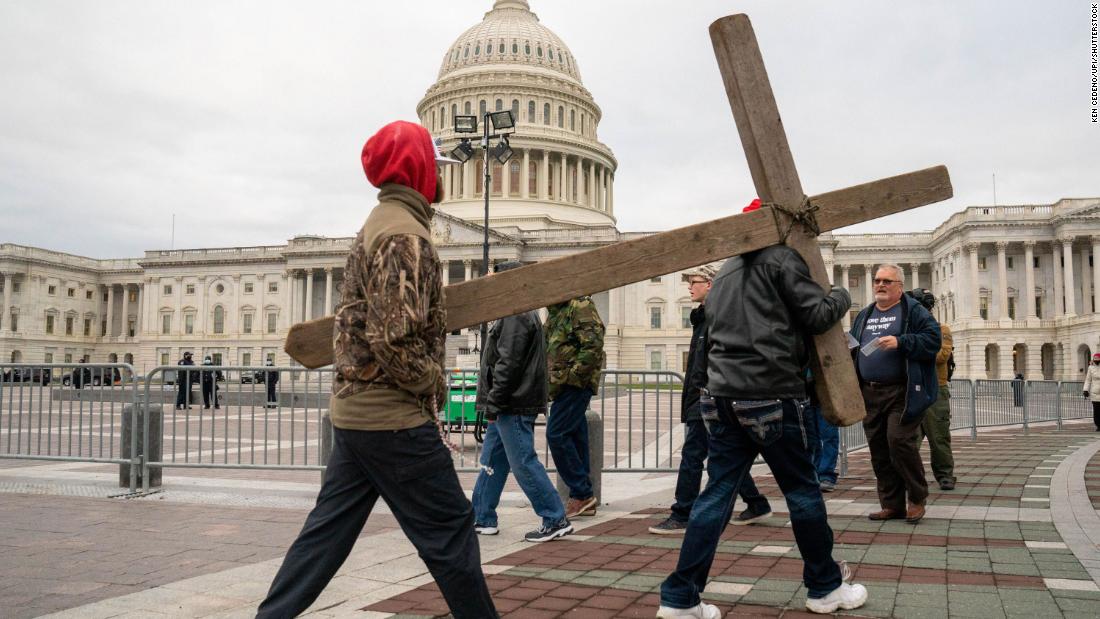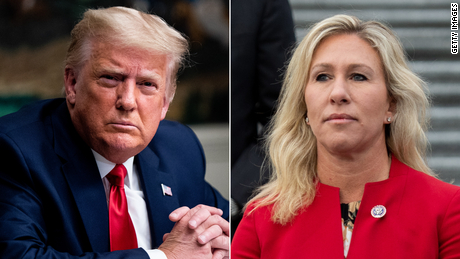Analysis: White evangelicals’ dominance of the GOP has turned it into the party of resistance
In both cases, Republicans defied broad signals from the political marketplace. Instead, they heeded the defiant partisan impulse that Trump sounded before leaving office: “If you don’t fight like hell, you’re not going to have a country anymore.”
Those words explain why Trump’s pugnacity continues to grip the GOP despite his electoral defeat, second impeachment and mounting legal woes. They reflect the existential dread motivating the conservative White Christians who form the party’s core constituency and fear 21st century America is drifting away from them.
“It really is about not giving an inch anymore — this sense of absolute resistance,” says Robert P. Jones, director of the Washington-based Public Religion Research Institute and author of “The End of White Christian America.”
White Christians’ hold on the GOP
For almost all of American history, White Christians have represented a large majority of the US population and controlled the levers of government power. But that majority had shrunk to just 54% by 2008 when Barack Obama won election as the first African American president and personified the nation’s changing demography.
Trump has personified resistance to that change with his turn-back-the-clock call to “Make America Great Again.” Faith in his singular mission proved so strong that at last summer’s nominating convention Republicans didn’t even offer a governing platform.
Resistance hasn’t worked. Trump lost his reelection bid, Democrats captured Congress, and the proportion of White Christians in the population has now shrunk to 44%, PRRI research shows.
But White Christians still hold unchallenged dominance within the GOP. They represent two-thirds of rank-and-file Republicans, Jones said. And they represent more than 90% of Republican senators, House members and governors.
The most conservative among them — those describing themselves as evangelical or born-again — wield the greatest influence. Last November, that group — comprising 28% of the overall electorate according to exit polls — gave Trump three-fourths of their votes. And their grievances against prevailing national sentiment on issues from gay rights to immigration to racial justice to election integrity echo through GOP stances in Washington and state capitals now.
Instead of condemning the idea of physical resistance, White evangelical Republicans embrace it, the AEI survey showed. Fully 60% agreed that “the traditional American way of life is disappearing so fast that we may have to use force to save it.”
Embracing lies
White evangelical Republicans who accept Trump’s election lies also propel the national GOP push to restrict voting procedures. Three-fourths believe Biden did not legitimately win the election, the AEI survey showed; among other Republicans, a 56% majority accept Biden’s victory as legitimate.
Even on the pandemic that has claimed more than 500,000 American lives, ravaged the economy and upended normal life, Republican lawmakers reflect the emphatic skepticism of White evangelicals.
In an AEI survey last fall, 68% of White evangelical Republicans said the media had exaggerated the number of deaths from the pandemic. In a separate PRRI poll, 68% expressed resignation over the toll of coronavirus, calling it “inevitable” rather than the result of failure to control the outbreak.
Meantime, Senate Minority Leader Mitch McConnell fends off questions about intra-party divisions by underscoring a higher priority: what Republicans agree they’re against.
“I think what you need to focus on,” McConnell told reporters last week, “is how unified we are today in opposition to what the Biden administration is trying to do.”
![]()




